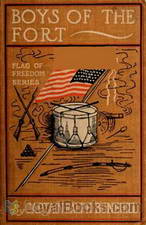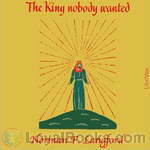|
Books Should Be Free Loyal Books Free Public Domain Audiobooks & eBook Downloads |
|
|
Books Should Be Free Loyal Books Free Public Domain Audiobooks & eBook Downloads |
|
Top Authors |
|---|
|
Book type:
Sort by:
|
By: Edward Stratemeyer (1862-1930) | |
|---|---|
 Boys of The Fort Or, A Young Captain's Pluck
Boys of The Fort Or, A Young Captain's Pluck
| |
 Richard Dare's Venture
Richard Dare's Venture
| |
 Dave Porter and the Runaways Last Days at Oak Hall
Dave Porter and the Runaways Last Days at Oak Hall
| |
By: John Maynard Keynes (1883-1946) | |
|---|---|
 Economic Consequences of the Peace
Economic Consequences of the Peace
The Economic Consequences of the Peace (1919) was a best seller throughout the world, published by John Maynard Keynes. Keynes attended the Versailles Conference as a delegate of the British Treasury and argued for a much more generous peace with Germany. The book was critical in establishing a general worldwide opinion that the Versailles Treaty was a brutal and unfair peace towards Germany. It helped to consolidate American public opinion against the treaty and involvement in the League of Nations... | |
 A Treatise on Probability
A Treatise on Probability
| |
By: Ben Ames Williams | |
|---|---|
 All the Brothers Were Valiant
All the Brothers Were Valiant
Joel Shore, newly appointed captain of the whaling ship Nathan Ross following his brother’s apparent demise as captain of the same ship, elects to make his first cruise as captain to the very location where his brother had last been seen – the Gilbert Islands, in order to try to learn more about what happened to his brother. The focus of this tale is of that voyage halfway around the globe and the adventures which he and his crew encounter. | |
By: Hélène A. Guerber (1859-1929) | |
|---|---|
 Myths of the Norsemen From the Eddas and Sagas
Myths of the Norsemen From the Eddas and Sagas
| |
By: H. A. Guerber (1859-1929) | |
|---|---|
 Story of the Greeks
Story of the Greeks
This book is a collection of stories and histories about the Ancient Greeks, including many of their famous myths! | |
By: Hélène A. Guerber (1859-1929) | |
|---|---|
 Legends of the Middle Ages Narrated with Special Reference to Literature and Art
Legends of the Middle Ages Narrated with Special Reference to Literature and Art
| |
 Stories of the Wagner Opera
Stories of the Wagner Opera
| |
 Contes et légendes 1re Partie
Contes et légendes 1re Partie
| |
 The Book of the Epic
The Book of the Epic
| |
By: Ben Ames Williams (1889-1953) | |
|---|---|
 The Sea Bride
The Sea Bride
| |
By: Clarence Day, Jr. (1874-1935) | |
|---|---|
 This Simian World
This Simian World
Clarence Day, Jr., best known for his work Life with Father, presents a satirical speculation on how the world might be different if we apes had not risen to prominence, but rather one of the other species had become dominant in our place. | |
By: Frédéric Bastiat | |
|---|---|
 Sophisms of the Protectionists
Sophisms of the Protectionists
"To rob the public, it is necessary to deceive them," Bastiat said and believed. He reasoned, employing repetition to various applications, against fallacious arguments promoting the "Protection" of industries to the detriment of consumers and society. (Introduction by Katie Riley) | |
By: John William Polidori (1795-1821) | |
|---|---|
 The Vampyre; a Tale
The Vampyre; a Tale
| |
By: Frédéric Bastiat (1801-1850) | |
|---|---|
 What Is Free Trade? An Adaptation of Frederic Bastiat's "Sophismes Éconimiques" Designed for the American Reader
What Is Free Trade? An Adaptation of Frederic Bastiat's "Sophismes Éconimiques" Designed for the American Reader
| |
By: Helen Bannerman (1862-1946) | |
|---|---|
 Little Black Sambo
Little Black Sambo
| |
 The Story of Little Black Sambo and The Story of Little Black Mingo
The Story of Little Black Sambo and The Story of Little Black Mingo
| |
 The Story of Little Black Mingo
The Story of Little Black Mingo
| |
By: A. D. F. (Alfred Dwight Foster) Hamlin (1855-1926) | |
|---|---|
 A Text-Book of the History of Architecture Seventh Edition, revised
A Text-Book of the History of Architecture Seventh Edition, revised
| |
By: Norman F. Langford | |
|---|---|
 The King Nobody Wanted
The King Nobody Wanted
In a very real and interesting way, The King Nobody Wanted tells the story of Jesus. Where the actual words of the Bible are used, they are from the King James Version. But the greater part of the story is told in the words of every day. (Introduction by N. F. Langford) | |
By: Maria Gentile | |
|---|---|
 The Italian Cook Book
The Italian Cook Book
One of the beneficial results of the Great War has been the teaching of thrift to the American housewife. For patriotic reasons and for reasons of economy, more attention has been bestowed upon the preparing and cooking of food that is to be at once palatable, nourishing and economical.In the Italian cuisine we find in the highest degree these three qualities. That it is palatable, all those who have partaken of food in an Italian trattoria or at the home of an Italian family can testify, that it is healthy the splendid manhood and womanhood of Italy is a proof more than sufficient... | |
By: Sofronio G. Calderón (1878-1954?) | |
|---|---|
 Diccionario Ingles-Español-Tagalog Con partes de la oracion y pronunciacion figurada
Diccionario Ingles-Español-Tagalog Con partes de la oracion y pronunciacion figurada
| |
By: Saint Augustine (354-430) | |
|---|---|
 The Confessions of St. Augustine
The Confessions of St. Augustine
| |
By: Charles Johnson (fl. 1724-1736) | |
|---|---|
 Pirates
Pirates
| |
By: Stanley Waterloo | |
|---|---|
 The Story of Ab
The Story of Ab
This is the story of Ab, a man of the Age of Stone, who lived so long ago that we cannot closely fix the date, and who loved and fought well. | |
 The Wolf's Long Howl
The Wolf's Long Howl
| |
 A Man and a Woman
A Man and a Woman
| |
By: Hamilton Wright Mabie (1846-1916) | |
|---|---|
 Myths That Every Child Should Know
Myths That Every Child Should Know
A selection of famous and timeless myths, adapted for a junior audience. | |
 Folk Tales Every Child Should Know
Folk Tales Every Child Should Know
We have always loved stories. people have always entertained each other by telling tales around the campfire; traveling storytellers were huge crowd-pullers. Many of these stories were passed down through the generations, largely unchanged. "The stories made by the people, and told before evening fires, or in public places and at the gates of inns in the Orient, belong to the ages when books were few and knowledge limited, or to people whose fancy was not hampered by familiarity with or care for... | |
 Legends That Every Child Should Know; a Selection of the Great Legends of All Times for Young People
Legends That Every Child Should Know; a Selection of the Great Legends of All Times for Young People
| |